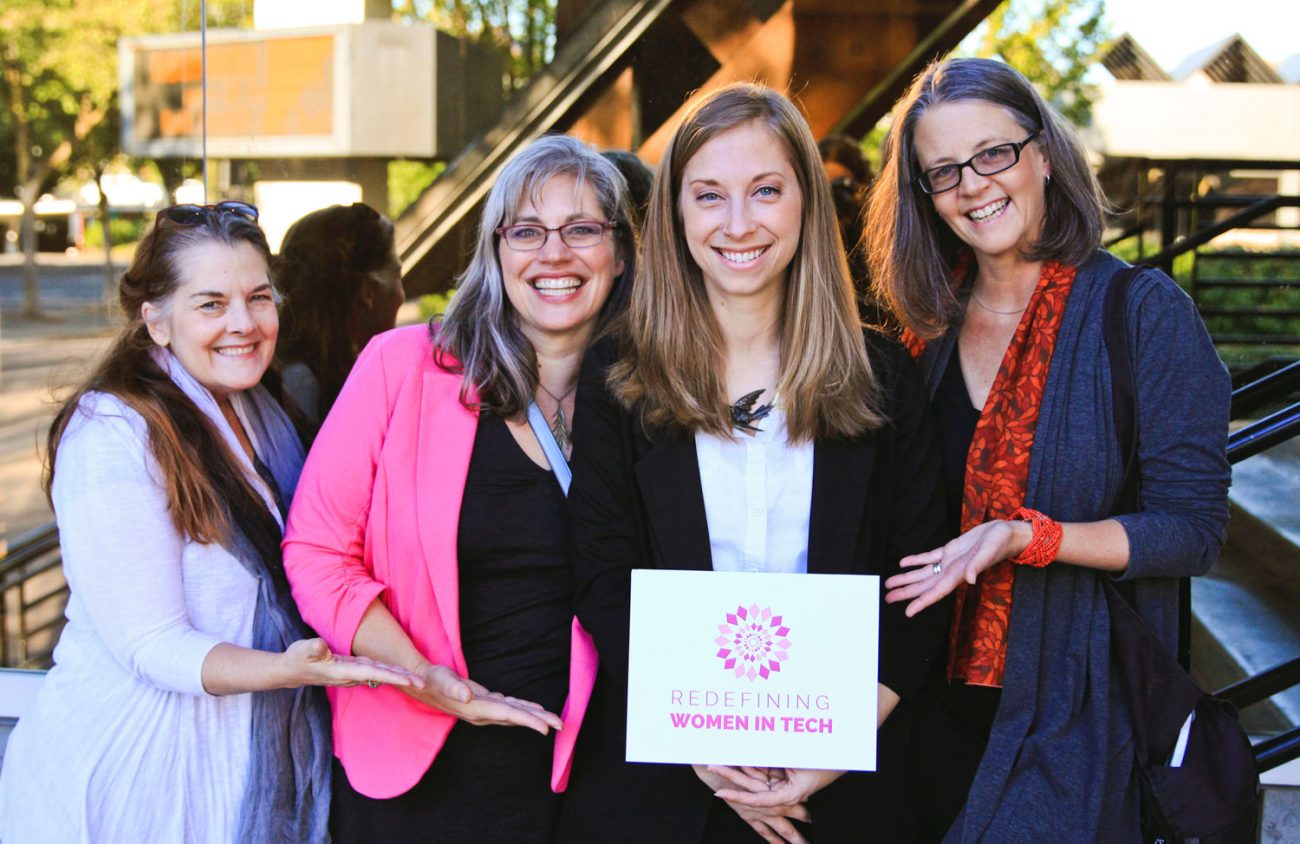Redefining Women in Tech (RWIT) is a nonprofit in Eugene that connects women with the communities and resources they need to thrive in tech careers. Lauren Jerome is a mentor-in-residence with RAIN Eugene (Regional Accelerator & Innovation Network) and co-founder of Mindbox Studios, a software and web development studio in Eugene.
Jerome organizes for RWIT, and she sat down with Eugene Weekly to talk about upcoming projects, the challenges women face in tech and the STEM (science, technology, engineering, math) education pipeline.
What are RWIT’s goals?
Our goals are to support women who are interested in technology careers. When we started out we did a resource guide to figure out what organizations are doing things and how we can support them without reinventing the wheel. So we decided that since there are a lot of programs already focused on the K-12 students — which is important for getting them into the whole pipeline — we would really focus on providing more for women who are older, specifically 18 and up.
Studies show that if they haven’t gotten into STEM by then, there’s a gap between high school and college and people on the other side of college who are starting to get into it then.
I’m an example of that — I studied engineering, so I did study STEM, but it wasn’t until I got on the other side of college that I was able to decide I wanted to get into tech — a lot of people do that. I’m actually talking to a young woman right now who studied biology and then decided she was interested in coding. A lot of what I do is workforce development, and the pipeline for candidates needs work.
What challenges do women face in the tech field?
A lot of women in that age group have already been missed because STEM programs aren’t really geared towards them or they’re already in a career of some sort. But a lot of times they just didn’t understand the pathways or the pathways weren’t appealing back then.
I think the biggest challenge for a lot of women is just imposter syndrome — wondering if they really belong. They tend to talk themselves out of it, so seeing people who look like them doing the same thing can help.
There are a lot of women who are either fulfilling those roles in non-technology businesses, or even women who are fulfilling non-tech roles at technology businesses who will say that they’re not in tech to not be pigeon-holed.
We’re trying to break down those barriers and get more people to just join the conversation about technology. We’re just hoping to have a more collaborative conversation and get the community to work together.
How many women are in tech compared to men?
The numbers here in Lane County are pretty average. It’s not just a local problem, so a lot of times people just throw their arms up because we realize that it needs to be a societal solution. I’d say that at most technology companies, the percentages of women are probably 25 percent or less.
Looking at education programs, the percentage of women enrolling is much lower than men, but drop-out rates aren’t really that different. The problem is that there just aren’t that many women to begin with.
I think there needs to be more of a community. If there are small numbers of women in organizations and in education and in our workforce, we can pull them together in a meaningful way at the community level instead of the organizational level and provide support that these organizations just really aren’t set up to provide.
Do you have any upcoming events?
Kiki Prottsman will also be putting on an event here on Nov. 29 called MindHack. It’s going to be a workshop on how to cultivate a mindset of diversity and inclusion, and how we can incorporate some of those ideas going forward in our workplace. That event is not necessarily just for women. That’s one of the ways Redefining Women in Tech can participate — by working with organizations and communities to break down the barriers that people don’t realize are there to being more inclusive.
For more information on RWIT, go to redefiningwomenintech.com.
